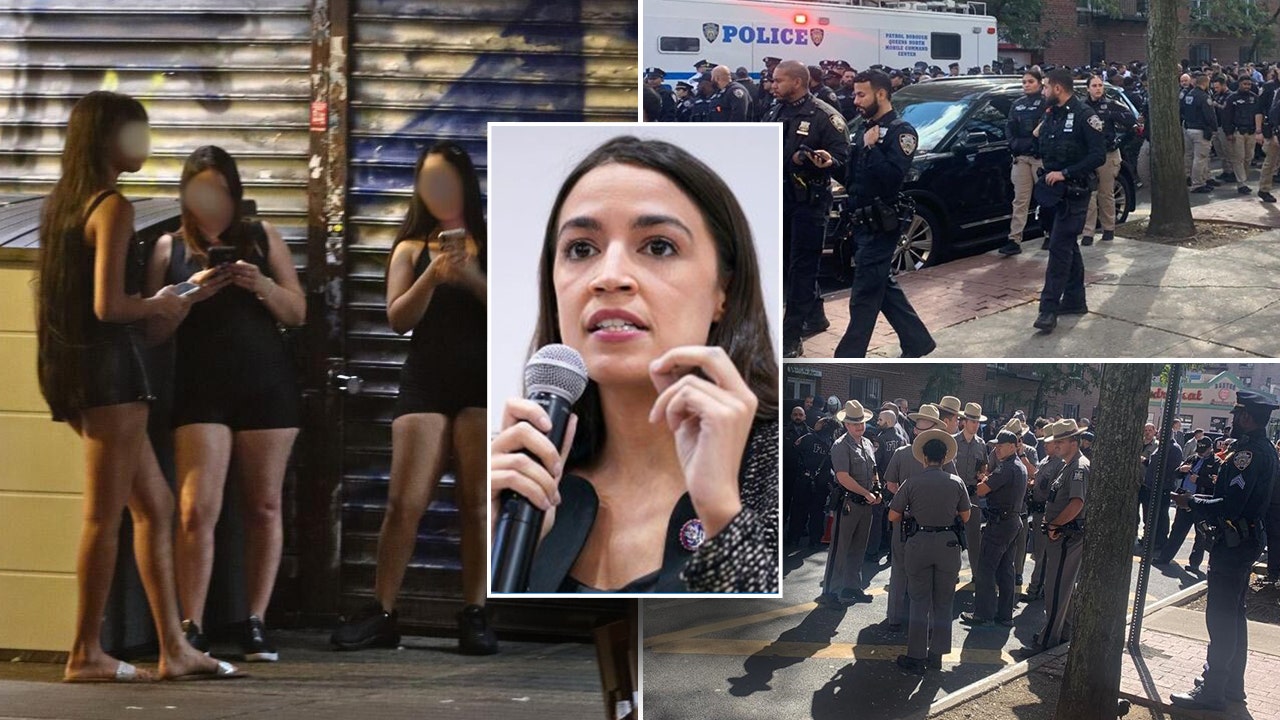Operation Restore Roosevelt: A Crackdown on Crime in Queens
In recent weeks, a significant law enforcement initiative has been launched in Queens, New York, aimed at addressing rampant crime and disorder in a notorious stretch of Roosevelt Avenue. This area, which falls within the district of Rep. Alexandria Ocasio-Cortez, has become infamous for its open prostitution, illegal street vendors, and a surge in robberies. Residents have expressed their frustration, likening the conditions to those found in a "Third World country."
The Context of the Operation
The operation, dubbed "Operation Restore Roosevelt," is spearheaded by New York City Mayor Eric Adams. It is a multi-agency effort designed to restore law and order over a 90-day period. The initiative comes in response to increasing community outcry regarding the deteriorating conditions along Roosevelt Avenue, particularly in the neighborhoods of Elmhurst, North Corona, and Jackson Heights. These areas have gained notoriety as a red-light district, where scantily clad migrant sex workers solicit clients at all hours.
Community Concerns and Political Responses
Local residents have long voiced their concerns about the escalating crime rates and the visibility of sex work in their neighborhoods. Reports indicate that on a single block, Fox News Digital observed a line of at least 19 alleged sex workers, with more scattered throughout the area. Parents have raised alarms about the presence of sex workers near schools and recreational centers, prompting calls for action from local politicians.
Council Member Francisco Moya, a Democrat, has described the situation as dire, noting that the area has "more brothels than bodegas." The operation aims to address not only prostitution but also the illegal street vendors who have taken over sidewalks, selling everything from hot food to used clothing.
Law Enforcement’s Approach
Mayor Adams announced that the operation would involve a significant increase in police presence, including nine lieutenants, 42 sergeants, and 176 police officers. This deployment is intended to tackle the organized crime elements that have taken root in the area, including human trafficking and drug-related activities. Adams emphasized the commitment to eradicating sex trafficking, stating, "We are not here for one day and go away. We’re here for the problem to go away."
The operation has garnered support from local leaders, including Hiram Monserrate, a former state senator and current council member, who has been vocal about the need for increased police presence. He described the area as an "urban crime zone," highlighting the involvement of gangs and cartels in the criminal activities plaguing Roosevelt Avenue.
The Impact of Previous Efforts
Despite previous efforts to address the issues, including brothel raids and increased police patrols, residents have reported that conditions have worsened. Monserrate noted that police patrols had been reduced by about one-third in recent years, contributing to the rise in crime. He criticized the lack of effective enforcement, stating, "You got cartels, you got good street gangs, you got drug gangs, human trafficking rings. And they’re running the whole operation."
The community’s frustration is compounded by the perception that many of the brothels that are raided quickly reopen, often within hours. This cycle of temporary closures and reopenings has left residents feeling that their concerns are not being adequately addressed.
Broader Implications and Future Actions
The situation in Roosevelt Avenue reflects broader issues within New York City regarding crime, policing, and community safety. Monserrate and other local advocates have called for a reversal of controversial bail laws that they believe have contributed to the cycle of crime. These laws, which ended the use of cash bail for many offenses, have been criticized for allowing repeat offenders to return to the streets quickly.
As the operation unfolds, the community remains hopeful for tangible improvements. Local leaders and residents are closely monitoring the situation, advocating for sustained efforts to restore safety and quality of life in their neighborhoods.
Conclusion
The ongoing challenges faced by residents of Roosevelt Avenue highlight the complexities of urban crime and the need for effective law enforcement strategies. As "Operation Restore Roosevelt" progresses, it will be crucial to assess its impact on the community and the long-term solutions necessary to address the underlying issues contributing to the area’s decline.
